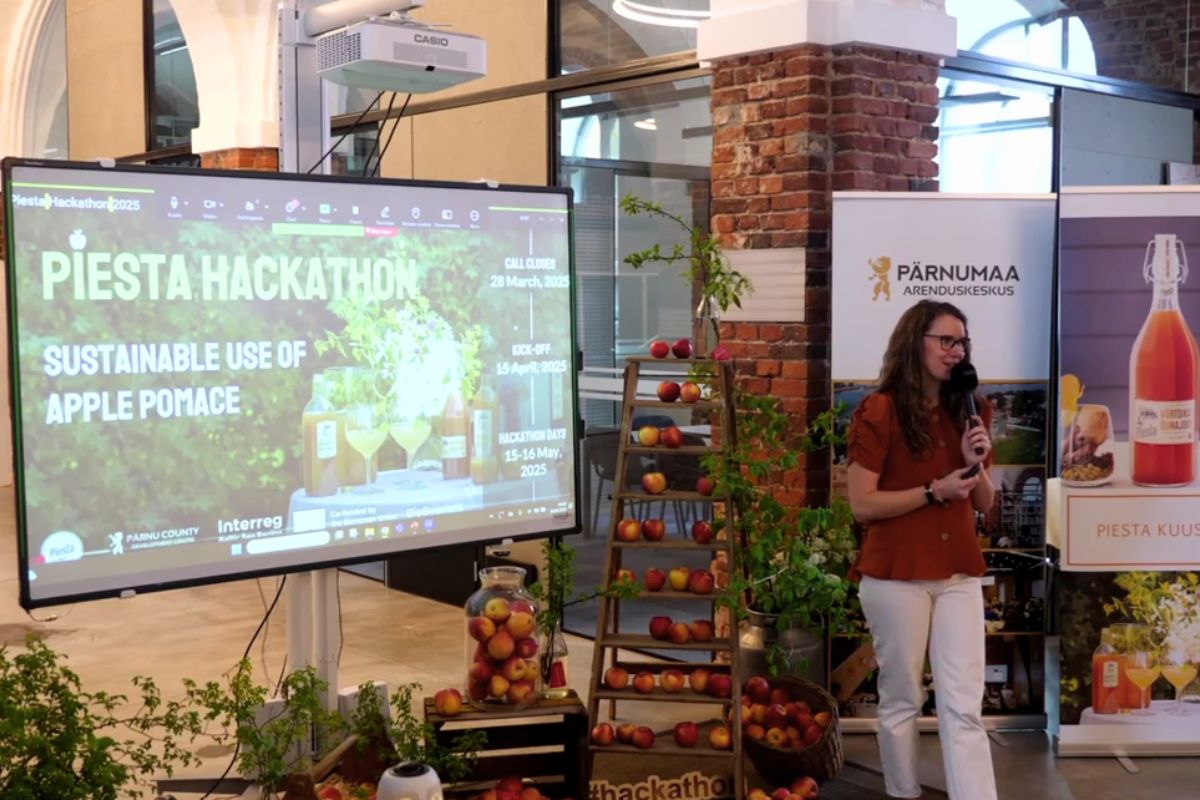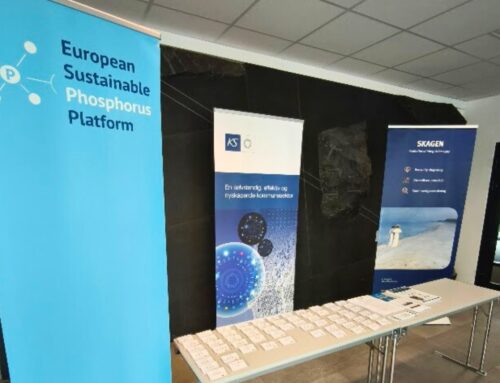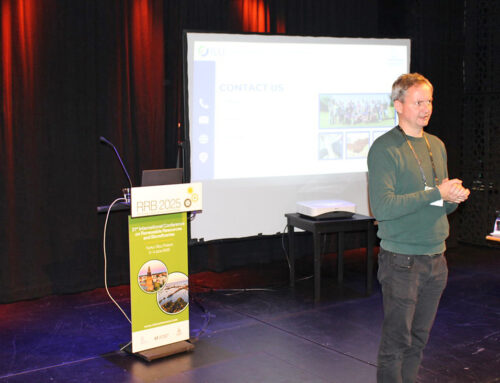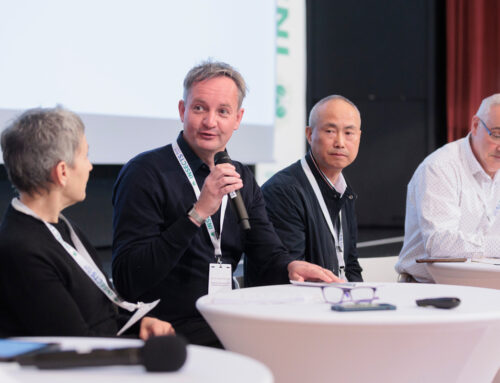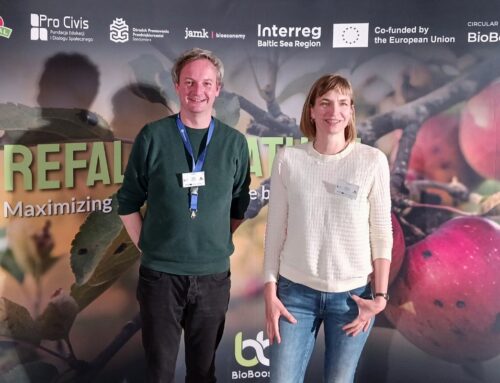Dr. Sandra Grebenteuch and Martin Almendinger successfully represented the ILU – Institute for Food and Environmental Research e.V. at the two-day ‘Piesta Hackathon – Sustainable Use of Apple Pomace’ on 16 May 2025. Participants from all over Europe were connected on site and online to present their ideas and innovations in 5 minutes and answer questions from the five-member jury.
The PIESTA Hackathon is organised and supported as part of the Interreg BSR project BioBoosters – boosting the circular transition. The aim of this international project is to increase the innovation level of entrepreneurs in the field of bioeconomy and circular economy. Project partners from 7 countries in the Baltic Sea Region (Finland, Sweden, Germany, Estonia, Latvia, Lithuania and Poland) will organise a total of 18 hackathons on the bioeconomy. The BioBoosters project is co-funded by the Interreg – Baltic Sea Region 2021-2027 programme.
Piesta Hackathon 2025: Pitching in front of the jury
In mid-May, the Piesta Hackathon 2025 focussed on apple pomace, looking for innovative ways to create added value from this by-product – using it instead of composting it.
On the first day, there was not only a lot to discover and plenty of input, but also helpful tips and new perspectives from the mentors. The five pitches took place on the second day. The jury, consisting of Kylli Eller, Karme Petrutis, Karmo Haas, Katrin Kepp and Svea Ussden, had the task of evaluating them. The Piesta Hackathon 2025 was also broadcast on LinkedIn and Facebook via a livestream so that people around the world could join in the excitement. Viewers also had the opportunity to vote for their favourite.
Biohumus AB from Sweden made the start. The company is involved in the production and sale of Biohumus (worm humus), an organic fertiliser and soil improver. Its aim is to use worms to improve soil health and fertility.
Klarevo from Estonia focussed on the breeding and processing of the Black Soldier Fly (Hermetia illucens). The goal: a sustainable circular economy in which the insect is used as a local source of protein for animal feed.
The Institute for Food and Environmental Research (ILU) from Germany presented to the audience and the jury the possibilities of extruding the pomace in order to obtain a new type of fruit pulp. This should find a new use as a fruit filling in baked goods, for example.
POMA-VALOR from Finland presented the idea of isolating various valuable compounds, such as pectin, using different extraction processes (e.g. with supercritical CO2).
NPO Veggies Cultivation from Estonia, on the other hand, uses fermentation to produce organic fertiliser, known as bokashi.
Winners of the Piesta Hackathon 2025
After the participants’ intensive pitches, there was a breather during which the audience also had the opportunity to actively participate in the award ceremony. Using a QR code, viewers were able to vote online for their favourite and thus award the audience prize.
The award for the overall winner of the Piesta Hackathon 2025 went to Rihard Reissaar from Klarevo in Estonia. The audience award and thus the hearts of the viewers went to the ILU from Bad Belzig.
Discover projects:
